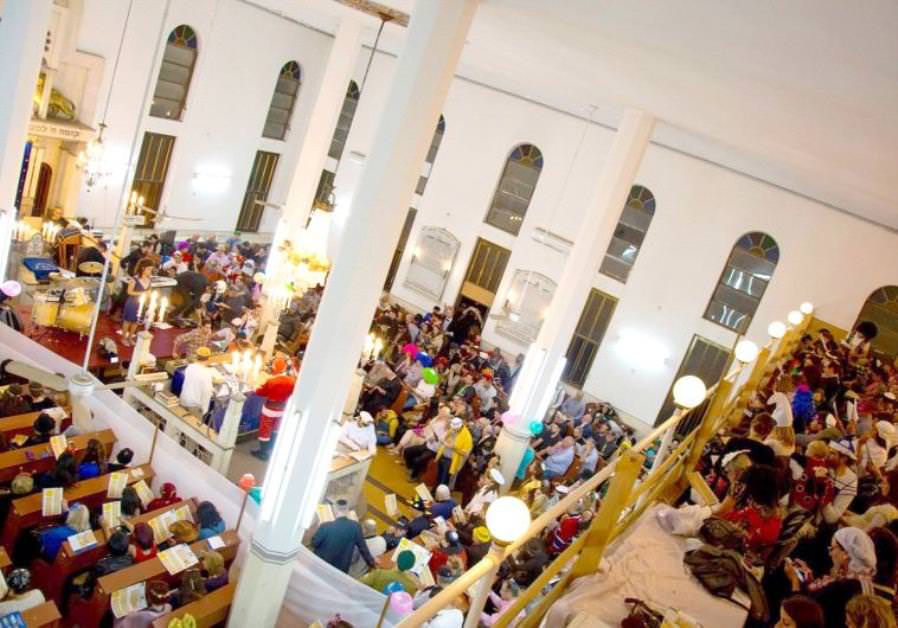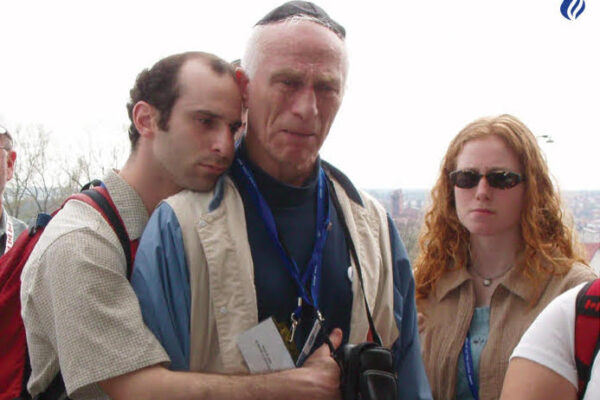
A packed house for the Purim megila reading in 2016 at the Tel Aviv International Synagogue. (photo credit:Courtesy)
Jerusalem Post – Purim has a special significance for me. My parents barely survived the Holocaust, and the rest of my extended family didn’t. This special significance reawakens every time I read the Megillah, and in my mind’s eye I try to translate the words of the Megillah into a realistic, historical picture.
Purim in essence commemorates the salvation of the Jewish nation from a premeditated holocaust motivated by pure, unadulterated antisemitism. It brings to light the roots of antisemitism throughout history and the incredible survival of the Jewish nation over its thousands of years of existence. Antisemitism and Jew-hatred was and still is a phenomenon for which every attempt at a rational explanation has failed. Even more inexplicable is the survival of the Jewish people over the generations.
No one can logically explain how we have survived the unending attempts of strong, established nations to destroy us, whether their methods were brutal and direct, or sophisticated and subtle.
The Megillah reading and the customs of Purim put the holiday into its historical context. The kingdom of Ahashverosh, the stage for the drama of the Megillah, was a global empire. Ahashverosh was an all-powerful king, but also a licentious one whose favorite pastime was orchestrating and indulging in gargantuan feasts. A king lacking restraint, who on the spur of the moment lost his head and executed the queen, despite the fact that thanks to her he became king. Then we encounter the wicked Haman, whose meteoric ascent propelled him to the position of royal viceroy.
Haman proposed the “Final Solution” – annihilation of all the Jews: “To destroy, to kill and to wipe out all the Jews, from young to old, children and women, in one day, on the thirteenth day of the twelfth month which is the month of Adar, and to plunder their possessions” (Esther 3:13).
The rationale for the genocide: the Jews are inferior, they lack a national identity, they are insular, they don’t fit into the society of the Persian Empire, and they are useless. This is antisemitism in its purest form – Haman doesn’t even try to explain what good wiping out the Jews will do the Persian Empire. In the end the tables are turned thanks to a miracle and thanks to Mordechai and Esther’s brilliant political maneuvering. Haman’s plot to annihilate the Jews was thwarted, the pursued became the pursuers and the intended victims emerged victorious.
It is difficult to fully appreciate the meaning of the rejoicing over the salvation of Purim since it is difficult to grasp the magnitude of the calamity that was prevented.
Without visualizing the catastrophe as if it actually took place, we cannot comprehend its severity. And since we managed to avert it before it happened, we are hard-put to fully understand its significance.
Today, more than 70 years after the Holocaust, we know the results of the schemes of the German arch-villain and his cohorts to eliminate the nation of Israel. So unfortunately, we can also imagine the totality of the disaster which was prevented in the days of Ahashverosh, and consequently we can understand the joy of Purim.
Let’s all get into the proverbial time machine. We’re going back 80 years, to the days when Hitler came to power and proclaimed his intention to eradicate the Jews. Now let’s imagine that before his machine of destruction began its genocide, the whole plan was stopped, either by diplomacy or by assassination. Wouldn’t we have celebrated? Wouldn’t our elation have been boundless, leaping from the depths of our hearts and radiating to the heavens? This is the way to relate to Purim today.
It is the wondrous, miraculous story of a holocaust which was nipped in the bud.
And this is the essence of the joy which should accompany us throughout the holiday.
“In each and every generation there are those who stand up and try to annihilate us. And the Holy One, Blessed be He, rescues us from their hands” (Passover Haggada).
Originally published HERE








